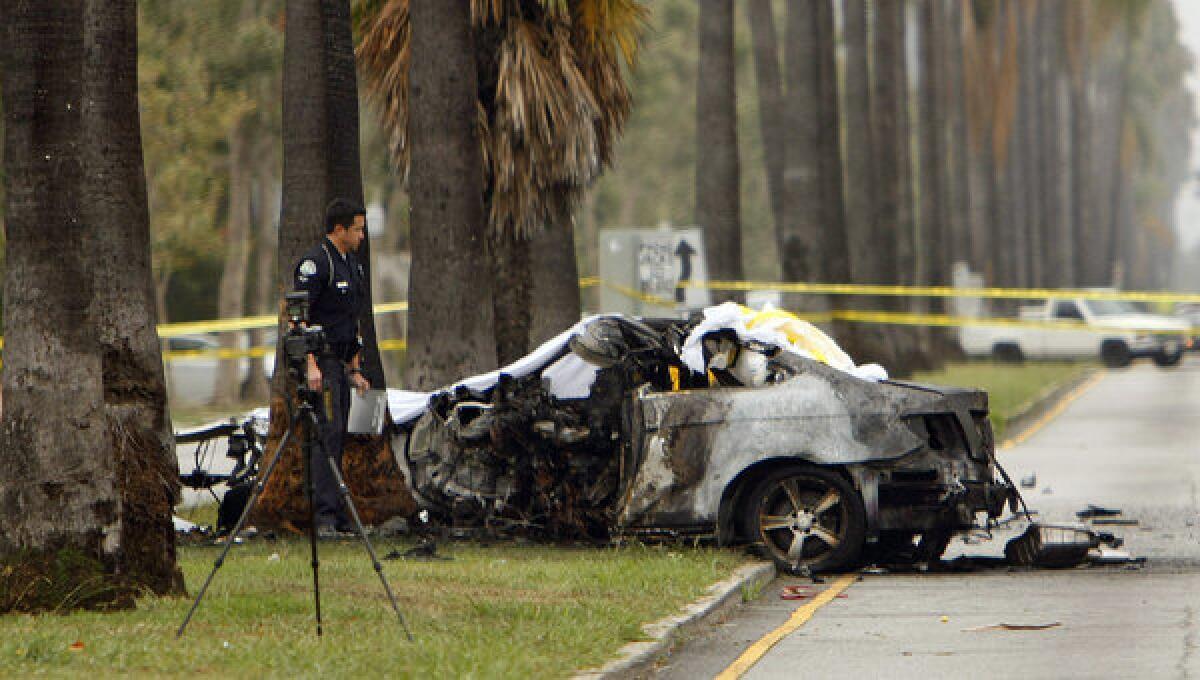Michael Hastings dies at 33; his article led general to resign

Michael Hastings, an aggressive and iconoclastic journalist whose reporting exposed the vagaries of the war in Iraq and helped bring down the top U.S. general in Afghanistan, died early Tuesday in a car crash in Los Angeles, according to two of his employers. He was 33.
The coroner and other authorities would not confirm the death of the freelance reporter, though police reported that a single-car accident on North Highland Avenue killed the driver about 4:25 a.m. The website BuzzFeed first reported Hastings’ death, which was later announced in an obituary by Rolling Stone. The reporter wrote for both and had opened BuzzFeed’s L.A. bureau last fall.
In reporting stints in Baghdad, Washington and Kabul, Hastings rejected the cozy access reporting favored by some of his colleagues in favor of bare-knuckle truth-telling that sometimes rubbed his peers and subjects the wrong way.
His 2010 Rolling Stone profile of Gen. Stanley McChrystal, “The Runaway General,” exposed the general and his staff’s disdain for their superiors, ranging from National Security Advisor James L. Jones to Vice President Joe Biden and President Obama.
While other reporters had been charmed by McChrystal’s locker-room-style banter, Hastings believed the chatter had a darker edge. The reporter had the good fortune of being hunkered down for more than a week with the commander and his staff in Europe as they waited out air traffic delays caused by a volcano eruption in Iceland.
During the delay, Hastings recorded the officers deriding Biden as “Bite Me,” belittling America’s French allies as “gay,” and calling Jones, a retired four-star general, a “clown.”
McChrystal had previously antagonized the Obama administration by using the media to promote a troop build-up in Afghanistan. The Rolling Stone article proved one breach too many for Obama. The president recalled the general to Washington, where McChrystal offered his resignation.
Hastings won the prestigious George Polk Award for magazine reporting and later wrote a book about McChrystal and his time in the war zone: “The Operators: The Wild and Terrifying Inside Story of America’s War in Afghanistan.”
Hastings was born Jan. 28, 1980, in Burlington, Vt., and graduated from New York University in 2002. Newsweek had assigned him to cover the war in Iraq at 25. His reporting there was equally brash but most memorable because of his writing about a personal tragedy. His girlfriend, Andi Parhamovich, died in an ambush by Sunni extremists.
Back in his home state of Vermont and recuperating from the loss, Hastings needed just weeks to turn his Iraq experiences and Parhamovich’s death into a draft of the book, “I Lost My Love in Baghdad.”
If a few journalists thought his assessment of McChrystal overly harsh, others were unnerved by his willingness to so rapidly convert personal tragedy into reportage. “Because telling it takes the author to no depth of felt insight, this portrait of Andi is either unnecessary or unjust, or perhaps both,” wrote George Packer in the New Yorker.
Hastings’ stories, though, were not easily forgotten. Rolling Stone noted Tuesday the breadth of his coverage, despite his youth: an expose of American drone attacks, an exclusive interview with WikiLeaks founder Julian Assange and a look at the Army’s use of “psychological operations” to influence sitting senators. He also reported on the presidential campaigns of 2008 and 2012.
In a 2010 interview with the Los Angeles Times, Hastings said he admired “writers who live their lives with integrity and without compromise.” He even identified McChrystal as a kindred spirit, someone who also liked to stick it to “The Man.”
Will Dana, Rolling Stone’s managing editor, expressed deep sadness Tuesday in a story on the magazine’s website. “Great reporters exude a certain kind of electricity,” Dana said, “the sense that there are stories burning inside them, and that there’s no higher calling or greater way to live life than to be always relentlessly trying to find and tell those stories.”
Hastings is survived by his wife, the writer Elise Jordan.
Times staff writers Richard Winton, Andrew Blankstein and Kate Mather contributed to this report.
More to Read
Start your day right
Sign up for Essential California for the L.A. Times biggest news, features and recommendations in your inbox six days a week.
You may occasionally receive promotional content from the Los Angeles Times.







